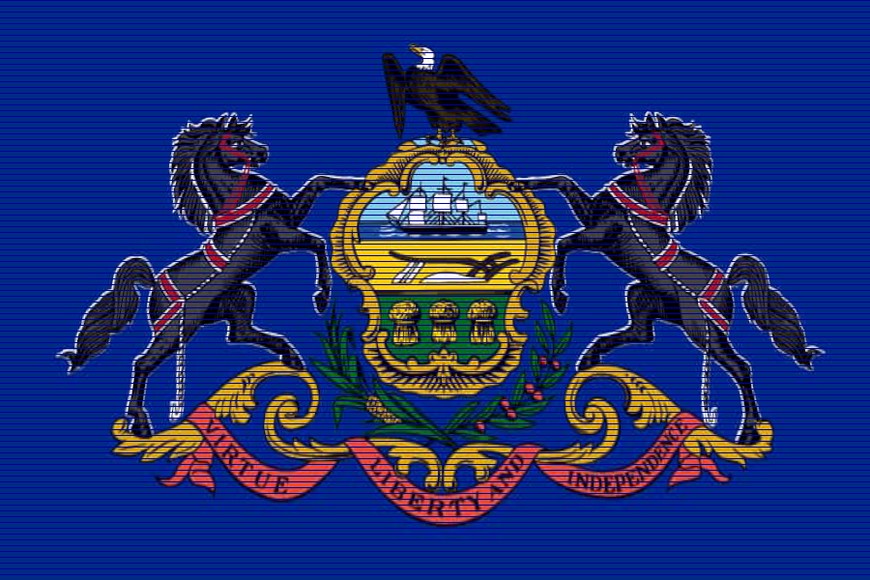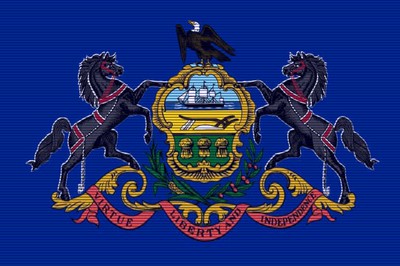

What’s this all about?
Last week, Rep. George Dunbar (R-Jeannette) introduced bill HB 2078, that would authorize the Pennsylvania Gaming Control Board (PGCB) to request membership in a multi-state gaming compact that helps support online poker. That compact is the Multi-State Internet Gaming Agreement (MSIGA).
What does Rep. Dunbar’s bill say?
It’s a short bill. All it does is articulate that the PGCB request membership in MSIGA, and it is also authorized to enter into an agreement on the state’s behalf. The regulator would have 30 days to make that request once the bill becomes law.
Didn’t the PGCB already have the power to do those things?
No, it did not. Currently, only Governor Josh Shapiro can request to join MSIGA and enter into an agreement with the compact.
Why doesn’t the governor do that then?
That’s an excellent question, and we’ve been wondering that for years. Rep. Dunbar said he thinks Governor Shapiro just isn’t aware of the issue, and that his predecessor, Governor Tom Wolf, wasn’t interested in it at all. But he thinks that by introducing this bill, he can help force the issue.
How does the bill become law?
It first needs to pass both houses of the Pennsylvania General Assembly. Here comes a quick civics lesson.
HB 2078 was introduced in the House on March 5. That same day, it was referred to the House Gaming Oversight Committee. The bill will need a committee hearing — Dunbar thinks he can get one — and it will need to pass a committee vote before advancing to the House floor for a vote there. If it passes the House, it will advance to the Senate.
The Senate could also assign the bill to a committee for further study. If the bill is unchanged it will be sent to the governor for his signature. But if the Senate makes changes, the House will need to agree to them. Sometimes both houses will convene a joint conference committee to iron out the differences. Once any changes are agreed to, the bill goes to the governor.
What happens then with the governor?
Governor Shapiro would have three choices:
- He could sign HB 2078, and it would immediately become law. That would then start the clock for the PGCB to make the membership request of MSIGA.
- He could decide not to sign it. In this case, the bill would still become law — it would do so automatically, depending on whether or not the General Assembly is in session. If they are in session, the bill automatically becomes law in 10 days. If not, it becomes law in 30 days.
- He could veto the bill. At that point, the General Assembly would have to decide just how badly they want multi-state poker. If two-thirds of the members in each house still like the idea, then you can start counting the days for the regulator to make the ask to join MSIGA.
End of civics lesson … but if you’re a nerd like me, it’s all here 🤓.
Does anyone have an idea for which way the governor is leaning?
He hasn’t said anything publicly about multi-state poker, but Rep. Dunbar doesn’t think the governor would stand in the way of HB 2078 becoming law if it reached his desk. Whether or not it becomes law via his signature or not remains to be seen (obviously).
That’s all well and good, but does this bill really have a chance?
Rep. Dunbar seems to think so! He said in an exclusive interview with Poker Industry PRO that “it seems like such an easy, no-brainer lift to me. I don’t know what the opposition would be. I don’t see any people against something like this.”
And this is from a veteran lawmaker. Rep. Dunbar has served in the House since January 2011 and is chairman of the House GOP caucus.
I’m still skeptical. Why should I get my hopes up now?
Well, Rep. Dunbar has already secured bipartisan support for his bill. The gaming committee chairman is a Democrat, but he planned to reach out to him. “Gaming legislation does not know a party affiliation,” he told PRO. “It’s always bipartisan, all gaming legislation works like that.”
The General Assembly will be in session through at least November.
He also knows his stuff. He plays online poker. “Liquidity is a big deal in poker. If you play poker, you know that something like this means more players, larger pots — and larger pots mean more players.”
Whoa, the bill’s sponsor plays online poker? 🤯
He does, and he’s been playing awhile. Rep. Dunbar said he remembers playing on partypoker before Black Friday — he once won “five or six grand” in a tournament with a $24 buy-in, something that’s harder to do these days.
Sounds great. Wait, partypoker is still around?
Yeah, but it’s nowhere near as big as it once was. You can still play partypoker in New Jersey and Ontario, but recent reports suggest its parent, Entain, is looking to sell the brand and possibly others.

